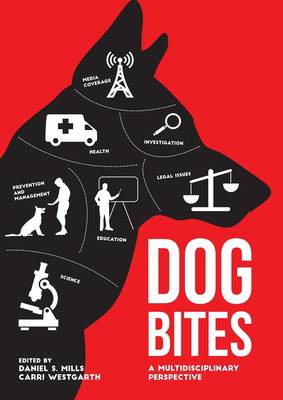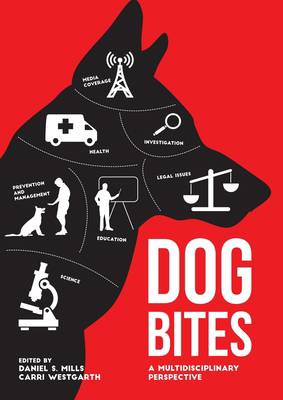
- Retrait gratuit dans votre magasin Club
- 7.000.000 titres dans notre catalogue
- Payer en toute sécurité
- Toujours un magasin près de chez vous
- Retrait gratuit dans votre magasin Club
- 7.000.0000 titres dans notre catalogue
- Payer en toute sécurité
- Toujours un magasin près de chez vous
122,95 €
+ 245 points
Description
The issue of dog bites and dog aggression directed at humans is frequently in the media. However, scientific research and evidence on the subject is scattered and sparse. Public and political opinions are often misinformed and out of proportion to the extent of the problem. Dog Bites brings together expert knowledge of the current situation, from a wide variety of disciplines, to provide information to the many people and professions affected by this issue. Subjects range from the practical, medical, behavioural, sociological, and theoretical, but the overall approach of the book is objective and integrative. Topics addressed include: the genetic basis of aggression; the public image of aggressive dogs; bite statistics; risk factors; the forensics and surgical aspects of dog bites; international legal perspectives; court evidence; first aid treatment; zoonotic disease potential; behavioural rehabilitation options; the risk to children; and a consideration of why some dogs kill. All contributors are academic or long-standing professional experts in their field, and they represent a wide spread of international expertise. This issue is an important one for pet owners, vets, animal shelters, and anyone who works with dogs, such as the police. This book will be a valuable resource for them, as well as for animal behaviourists, academic researchers, health professionals, dog breeders, and handlers. *** "... the first comprehensive resource on the subject of dog bites... The overall intent of the book is to prevent dog bites. ...does a good job of compiling the information we think we know about dog bites into one place. It also debunks much of what were previously accepted truths about dog bites to humans. In the final chapter, the editors state they hope that 'highlighting the many deficiencies in our understanding will inspire rather than demoralize' and that they 'have offered a point of reference not just to the problems but also the solutions'". --Journal of the American Veterinary Medical Association, Vol. 252, No. 6, March 15, 2018 [Subject: Veterinary Science, Public Policy, Animal Behavior, Animal Policing]
Spécifications
Parties prenantes
- Auteur(s) :
- Editeur:
Contenu
- Nombre de pages :
- 460
- Langue:
- Anglais
Caractéristiques
- EAN:
- 9781910455616
- Date de parution :
- 06-10-17
- Format:
- Livre relié
- Format numérique:
- Genaaid
- Dimensions :
- 178 mm x 251 mm
- Poids :
- 1270 g

Les avis
Nous publions uniquement les avis qui respectent les conditions requises. Consultez nos conditions pour les avis.






